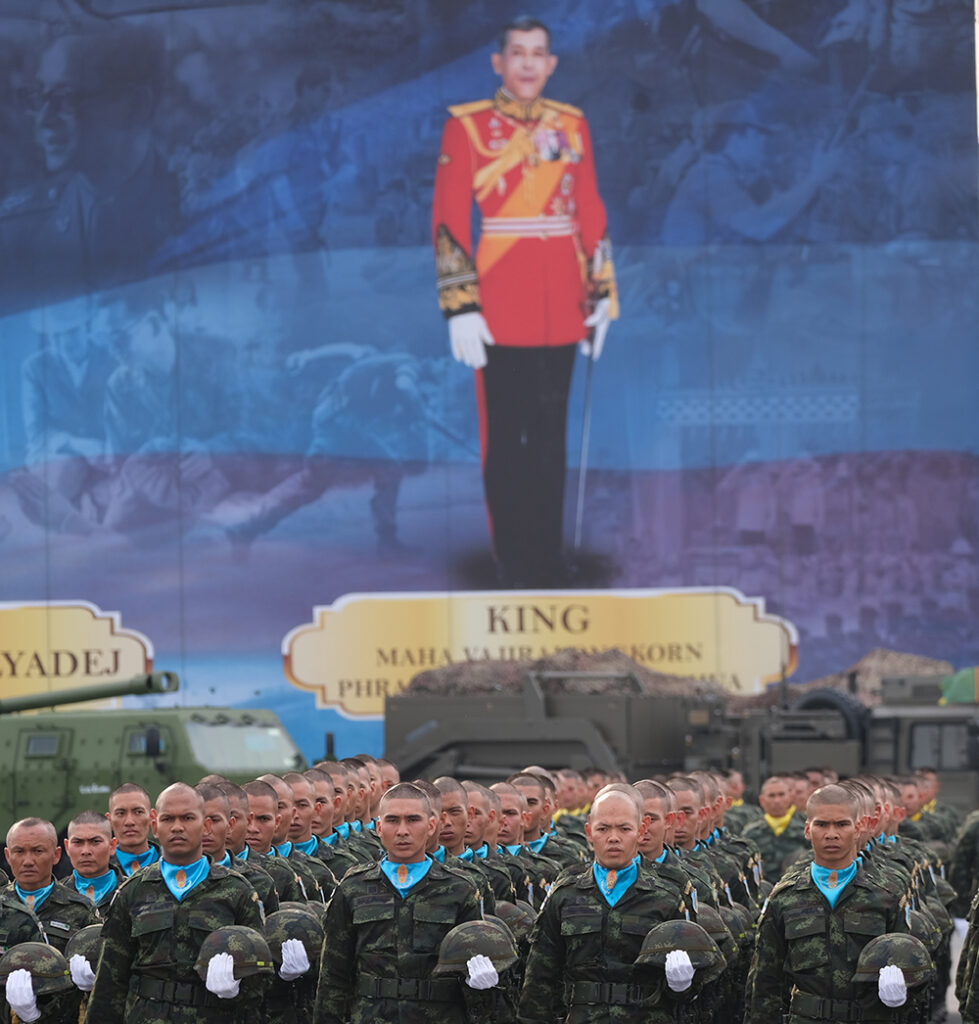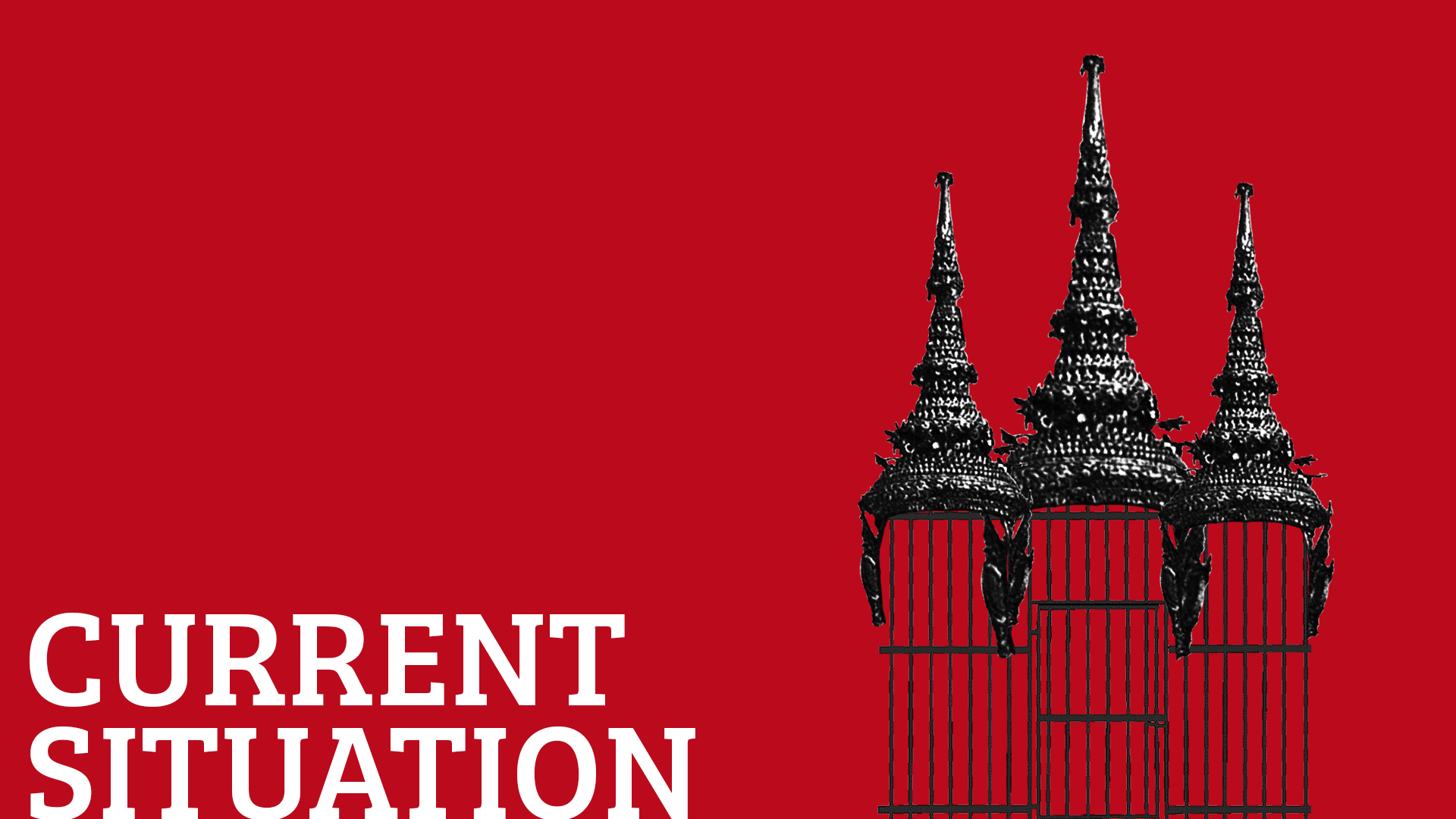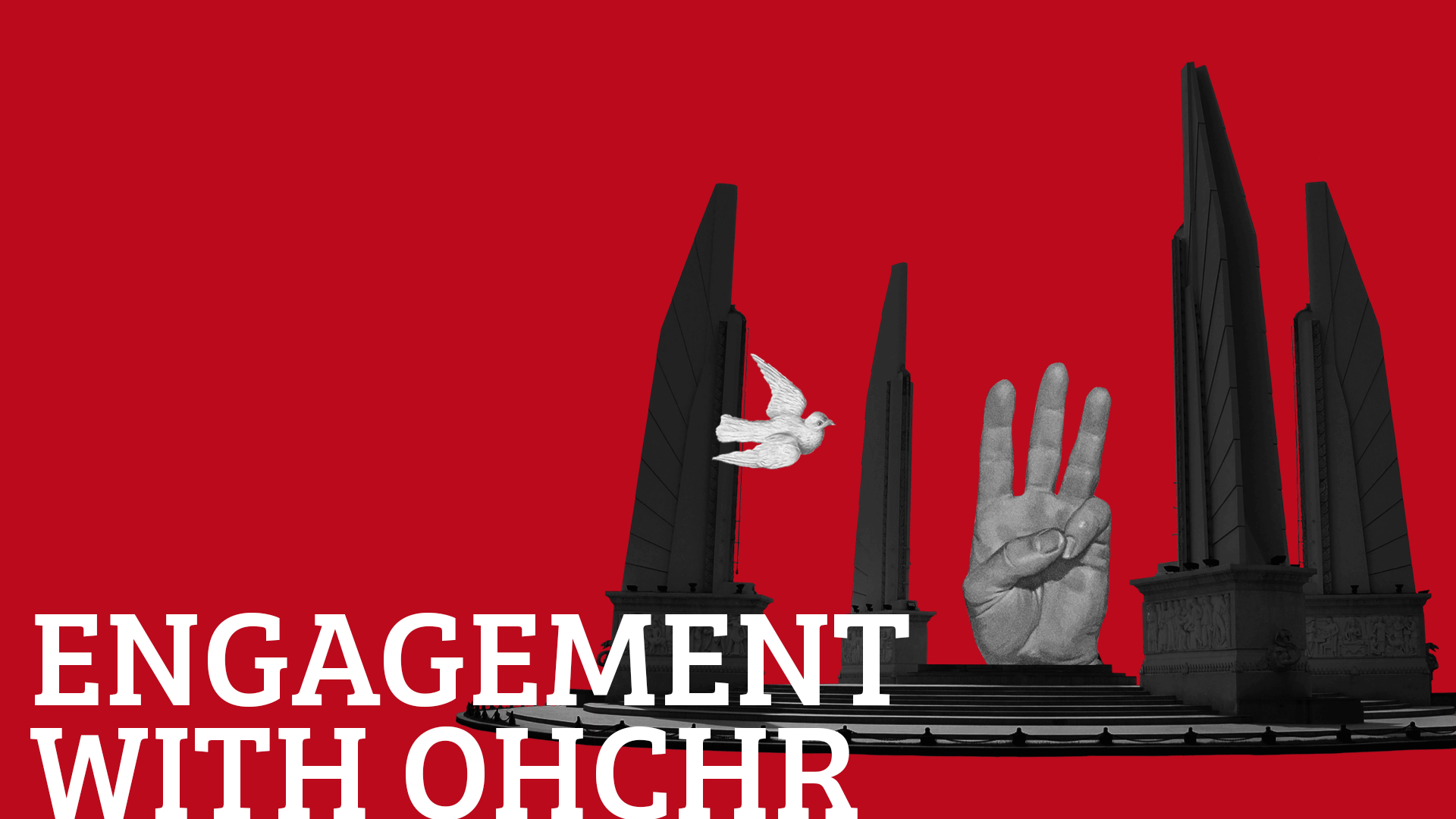
People’s Party: Save Your Betrayers or Let Thailand Burn?
The ultimate question isn't whether the People's Party can save Thai democracy—it's whether Thai democracy can be saved within a constitutional framework designed to kill it.
August 2, 2025
Thailand's political theatre has reached its most deliciously perverse act yet. Prime Minister Paetongtarn Shinawatra's dismissal by the Constitutional Court—the fifth such removal in seventeen years—has transformed the kingdom's democracy into a grotesque carousel of judicial assassinations. But here lies the exquisite irony: the very party that was betrayed, dissolved, and politically crucified now holds the golden key to Thailand's governmental survival. Will Thailand's betrayed People's Party revenge-elect their betrayers or watch them burn? This question transcends mere political gamesmanship; it exposes the fundamental contradiction at the heart of Thai constitutional monarchy, where democratic legitimacy has become the enemy of institutional stability, and where yesterday's victims have become today's kingmakers in a system designed to eliminate them entirely.
The Shinawatra Elimination Machine
The Shinawatra dynasty's systematic destruction reveals Thailand's Constitutional Court as an elimination machine dressed in legal robes. Thaksin's 2006 coup removal, Yingluck's 2014 judicial execution, and now Paetongtarn's dismissal over a phone call expose what Larry Diamond calls "competitive authoritarianism"—democratic institutions weaponized against democratic outcomes.
Removing a Prime Minister for calling Cambodia's Hun Sen "uncle" during diplomatic negotiations is constitutional sadism. The court's obsession with "deference" while ignoring thirty border deaths and 300,000 displaced civilians reveals the monarchy's pathological insecurity. Steven Levitsky and Daniel Ziblatt's concept of "constitutional hardball" perfectly captures this perversion—legal mechanisms deployed for fundamentally anti-democratic ends.

The Constitutional Court has murdered five governments in seventeen years, transforming Thailand's democracy into political theatre where elected leaders serve at the pleasure of unelected judges. Francis Fukuyama's "political decay" theory explains this institutional cannibalism—when courts designed to protect democracy become democracy's executioners.
Thailand's 2017 Constitution crystallizes this elite supremacy with surgical precision. Designed by military architects, it institutionalizes minority rule through an unelected Senate, constitutional courts packed with establishment loyalists, and amendment procedures requiring supermajorities that democratic parties can never achieve. This isn't constitutional democracy—it's constitutional apartheid, where popular sovereignty is systematically subordinated to elite veto power. The charter's very DNA favors military and aristocratic interests, making genuine democratic reform constitutionally impossible without elite consent.
2023's Democratic Crucifixion: When Allies Become Judases
The 2023 betrayal represents democratic treachery at its most spectacular. Move Forward won the popular mandate demanding constitutional reform and monarchy modernization, only to watch supposed allies Puea Thai and Bhumjaithai abandon them for ultra-royalist coalitions. This wasn't politics—it was democratic crucifixion.
Puea Thai's betrayal enabled Thaksin's resurrection through a Faustian bargain with the establishment. The billionaire's triumphant return after sixteen years of exile, coinciding with his daughter's premiership, revealed the monarchy's cynical pragmatism—rehabilitating former enemies when convenient. Duncan McCargo's "network monarchy" theory explains this personal politics trumping constitutional procedures.
Move Forward's dissolution and resurrection as the People's Party represents institutional murder followed by political reincarnation. The party that dared challenge Section 112 was legally annihilated, only to rise phoenix-like under new branding. This demonstrates both the establishment's ruthless efficiency and Thai democracy's remarkable resilience.
The Monarchy's Fractured Confidence
Paetongtarn's removal has exposed something more sinister than judicial overreach—it reveals Rama X's profound insecurity despite orchestrating the very deals that brought the Shinawatras back to power. The hidden compact that facilitated Thaksin's return and his daughter's ascension has backfired spectacularly, leaving the monarchy trapped between elite pressures demanding conformity and the democratic forces it thought it could control.
This judicial strike against their own rehabilitated ally signals the monarchy's retreat into paranoid authoritarianism. Elite factions, sensing royal weakness, have successfully pressured the palace into abandoning pragmatic accommodation for reactionary purism. The result is institutional schizophrenia—a monarchy that makes deals only to destroy them when elite opinion shifts, revealing the Crown's diminished capacity to maintain consistent policy even with supposed allies.
The Kingmaker's Impossible Choice and Hidden Pressures
The People's Party now occupies history's most paradoxical position—the betrayed have become indispensable. Both Puea Thai and Bhumjaithai must genuflect before the party they crucified, seeking salvation from their intended victims.
Yet this kingmaker status comes with a poisoned chalice. The People's Party faces extraordinary pressure to rescue the 44 MPs facing Section 112 convictions—many from the very parties that betrayed them in 2023. Puea Thai and Bhumjaithai's desperate appeals for salvation create a moral trap: supporting their former betrayers might save democratic parliamentarians from judicial persecution, but it would validate the system that destroyed Move Forward for challenging the same lese-majeste laws.
This creates an impossible quadrilemma. Supporting either betrayer validates 2023's democratic assassination while potentially saving vulnerable MPs. Staying neutral enables military intervention as democratic governance collapses. Demanding Section 112 reform triggers the same forces that eliminated five prime ministers. Most dangerously, any misstep could provide pretext for Prayut Chan-ocha or another military strongman to seize power, claiming democratic chaos necessitates authoritarian restoration.
The spectre of military intervention looms largest of all. Thailand's generals, sensing governmental paralysis, position themselves as inevitable saviours of national stability. The constitution's design facilitates exactly this outcome—when democratic gridlock occurs, military intervention becomes the system's emergency valve, not its breakdown. The People's Party must navigate between Scylla and Charybdis—save their betrayers and legitimize treachery, or watch democracy drown in military-orchestrated chaos designed by the very constitutional framework that governs them. Thomas Carothers' "democracy recession" captures this perfectly—institutions that legitimize non-democratic power while maintaining democratic facades.
The citizens' fury adds deadly complexity. Having witnessed 2023's betrayal, Thai voters scrutinize every move through authenticity's lens. The People's Party base demands uncompromising resistance while governance requires establishment accommodation. Giovanni Sartori's "polarized pluralism" explains this trap—anti-system parties become systemically crucial but cannot govern without betraying core constituencies.

Conclusion: The Ultimate Democratic Revenge
Thailand's constitutional monarchy has created a political ouroboros—a system devouring its democratic legitimacy to survive while revealing the Crown's diminished authority even over its chosen allies. The People's Party's decision will determine whether this kingdom evolves beyond institutional schizophrenia or continues consuming elected governments until only hollow democratic procedures remain.
The supreme irony? Thailand's crisis represents both democratic failure and democratic vindication. The monarchy's inability to maintain confidence in its own deals exposes institutional weakness, while the People's Party's leverage proves authentic democratic forces retain power to determine their betrayers' fate. In a system designed to eliminate them, they've become indispensable kingmakers whose every choice carries existential consequences.
The most delicious paradox is that revenge might require salvation, but time is the ultimate enemy. Thailand's elite-biased constitution ensures that democratic windows close rapidly—delay allows military intervention, while hasty action legitimizes betrayal. The People's Party may need to save the MPs who betrayed them—not from magnanimity, but from strategic necessity and constitutional constraint. The 2017 charter's design means that allowing Puea Thai and Bhumjaithai's parliamentary destruction might satisfy vengeful impulses while triggering the constitutional mechanisms that inevitably favor military restoration over democratic competition.
The People's Party faces Thailand's cruellest constitutional trap: they must play a strategic game at breakneck speed within a framework designed to defeat them. Every moment of deliberation strengthens elite and military positions, while every quick decision risks validating the system that destroyed their predecessor. The constitution doesn't just favour elites—it weaponizes time itself against democratic forces.
Perhaps Thailand's twisted genius lies in forcing its most authentic democratic party to choose between moral purity and systemic survival. Whether the People's Party crowns their Judases, watches them burn, or engineers their conditional salvation matters less than this: for the first time in decades, the betrayed hold the crown while generals sharpen their swords and the monarchy questions its own shadow deals.
In Thailand's blood-soaked political theatre, the victims have finally become the directors—but their betrayers' audition for survival may determine whether democracy itself survives the performance. The People's Party stands at history's crossroads, wielding the power to save, damn, or transcend the very system that created them, yet shackled by a constitution that turns every democratic victory into elite advantage.
Their choice will echo through Thai history, but it must be made within the constitutional straitjacket that guarantees elite supremacy regardless of electoral outcomes. The ultimate question isn't whether the People's Party can save Thai democracy—it's whether Thai democracy can be saved within a constitutional framework designed to kill it. Time, the constitution's most ruthless weapon, is running out. The People's Party must choose: revenge as democracy's salvation, salvation as democracy's revenge, or swift strategic action as democracy's last hope against constitutional suffocation.
Prem Singh Gill
Prem Singh Gill is a Fellow at the Royal Asiatic Society (England and Ireland) and a Visiting Scholar in Thai Public Universities




